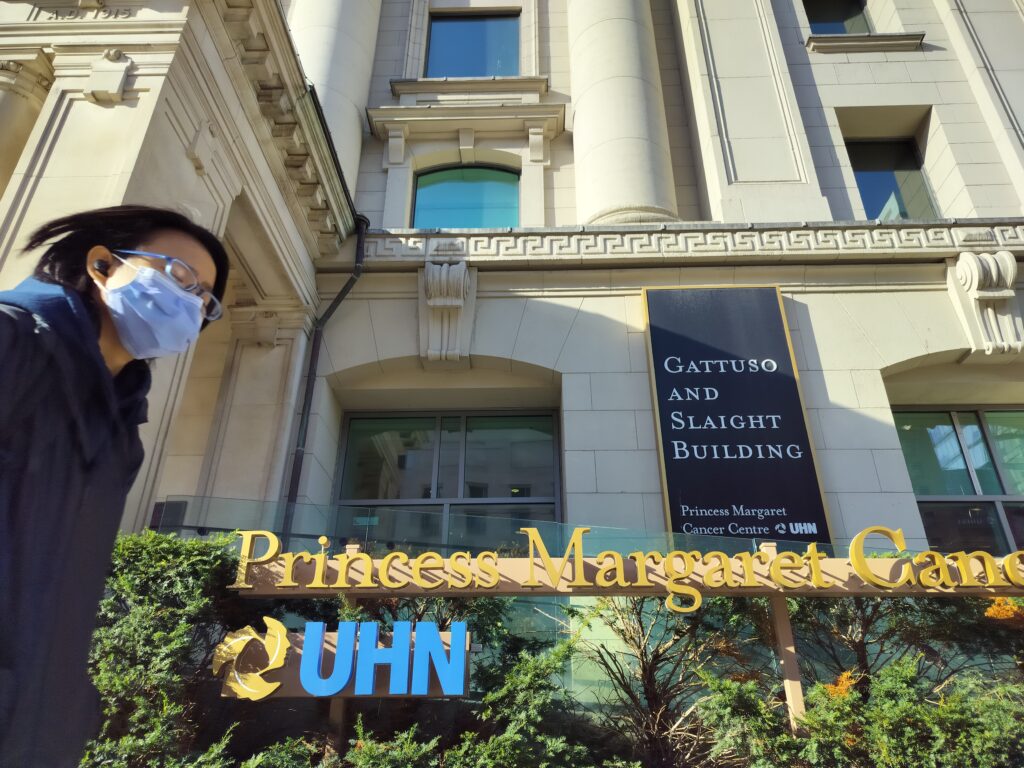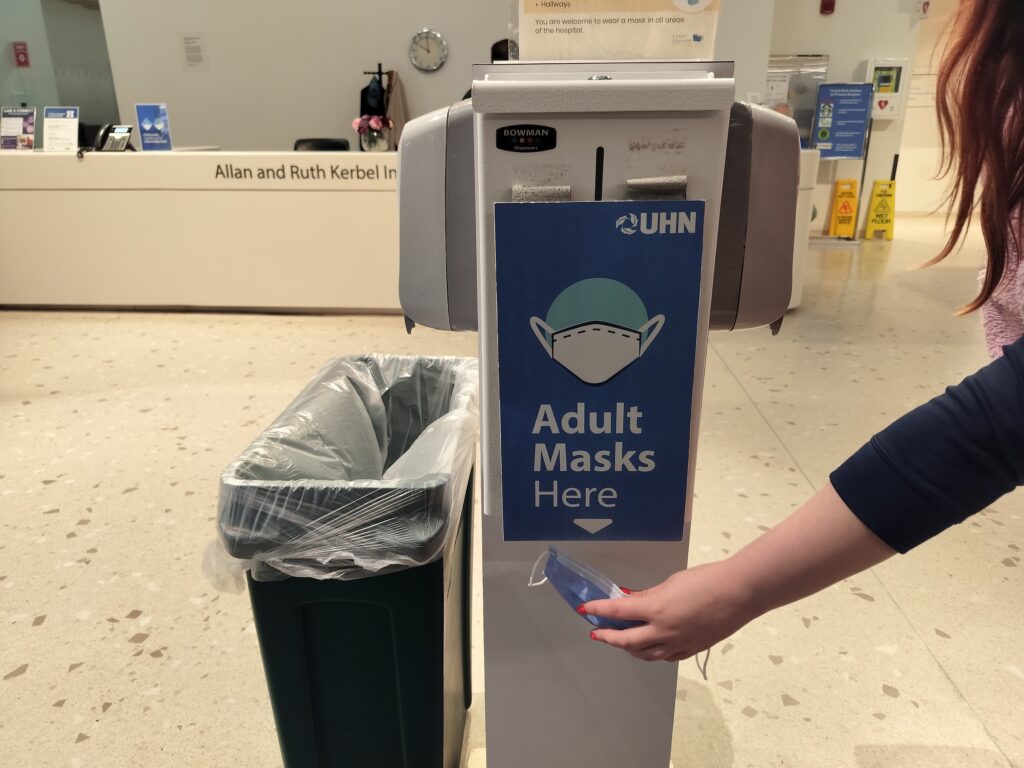
Listen to the whole story here:
The University Health Network (UHN) is the first hospital network in Ontario to officially announce ramping up its masking requirements amid respiratory illness season.
Starting Oct. 28, patients, visitors and staff will be required to wear masks while waiting for or receiving care in high-risk areas. However, masks are optional in common areas like lobbies and food courts where it can be considered to be a lower-risk area.
UHN consists of Toronto General Hospital, Toronto Western Hospital, Princess Margaret Cancer Centre, Toronto Rehabilitation Institute, The Michener Institute of Education at UHN and West Park Healthcare Centre.
Dr. Susy Hota, Medical Director of infection prevention and control at UHN, said that masking changes are made in response to levels of respiratory virus activity in a statement shared with OTR.
“Our approach to masking follows the provincial and national guidance to tailor our policy to the actual or expected level of risk for respiratory virus transmission,” she said. “With now moderate COVID-19 levels and other respiratory viruses like influenza and RSV expected to rise in November, we are now enhancing masking in our hospitals.”
According to a recent report by Public Health Ontario, there is a 15 per cent positivity rate for COVID in the province, with 89 cases reported between Oct. 13 and 19.
Meanwhile, the positivity rate for Influenza and RSV stands at 0.5 per cent and 1.1 per cent respectively.

UHN has also stated on their website that disposable masks will be available at all entrances, outpatient clinics and inpatient units.
“I’m more lenient to have it in hospitals than other public places, but they clearly don’t work,” former resident Pouria Pishva said. “At this point we should be going back and looking at everything that we did [during the pandemic] and see that it didn’t work. Doing the same things over and over is ludicrous.”
Dr. Sarah Kahn, Associate Medical Director for Infection Prevention and Control with Hamilton Health Sciences says that even though masks will be mandatory in hospital settings, they can be hard to enforce.
“How you choose to enforce [masking] is what I think will matter and realistically…it’s not like we’re going to refuse care to anyone if they’re not able to or not willing to [follow] our recommendation,” she says.
While the mask rules are enforced, UHN states that certain exemptions can be made. If a patient has a medical condition that prevents them from wearing a mask in an area where they are still required, they are advised to contact their UHN doctor or nurse practitioner’s office before their first appointment. And, if their exemption is approved, they receive an exemption form.
“We’re still…understanding transmission risk and what makes one situation or context higher risk compared to another,” said Kahn. “ I think more research is needed like, what viruses, what conditions, what environmental situations play into those factors, because that can inform a bit more clarity around this somewhat gray mask guidance that we have right now.”
Correction: An earlier version of this story had not explicitly stated that Dr. Sarah Kahn works for Hamilton Health Sciences. OTR regrets this omission.
This article may have been created with the use of AI tools such as Google Docs, Grammarly, and/or Otter.ai for transcription.


